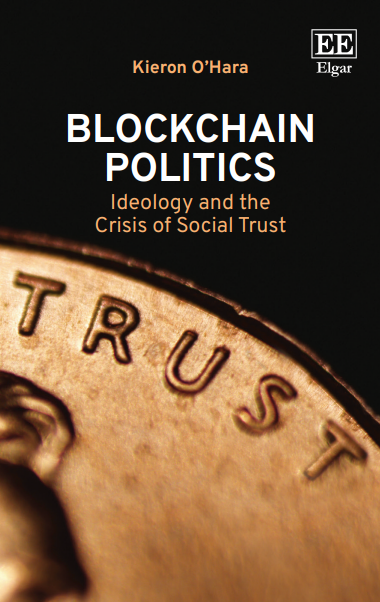
Welcome
Hi, thanks for dropping in.
I’m Kieron O’Hara, a writer and commentator on matters techy and philosophical. For 30 years I was an academic in the UK, first at the School of Psychology at the University of Nottingham, and then in Electronics and Computer Science at the University of Southampton, from which I retired and am currently an emeritus fellow.
I’m putting this site together to act as my online presence, and am gradually adding books and articles whenever I get a spare minute. Which, given that I am retired, is surprisingly rarely.
I’m enjoying writing all those books and articles I never had time to do when I was gainfully employed. I’m interested in the way that technology, and particularly AI and the World Wide Web, affects our lives, our politics and our economies. I’ve tended to specialise in issues to do with trust and privacy. The philosophical side is expressed through an interest in the philosophy of conservatism, especially that of Burke and Oakeshott.
The two topics seem very different, until you pose the question whether the incredible progress characteristic of today’s connected world renders the very idea of preserving present institutions and practices impossible, or alternatively whether it will take a rich appreciation of our past to enable us to innovate rapidly without alienation.
AboutContact
 Themes from my work
Themes from my work
Select a theme to see all books, articles and talks related to that theme.
 Recent blog posts
Recent blog posts

AI: Space Race or Arms Race?
In her Regius Lecture at the University of Southampton, Verity Harding, author of AI Needs You, set up two competing views of the geopolitics of …
Read more
The Witches’ Sabbath Today
While reading Jan Philipp Reemtsma’s interesting book Trust and Violence, published in English translation by Princeton University Press in 2012, I came across his description …
Read more
Who Are the Extremists?
The American Democratic Party is trying to get its act together ready for the mid-terms next year. The headwinds against it are pretty powerful, and …
Read more Kieron O'Hara
Kieron O'Hara








